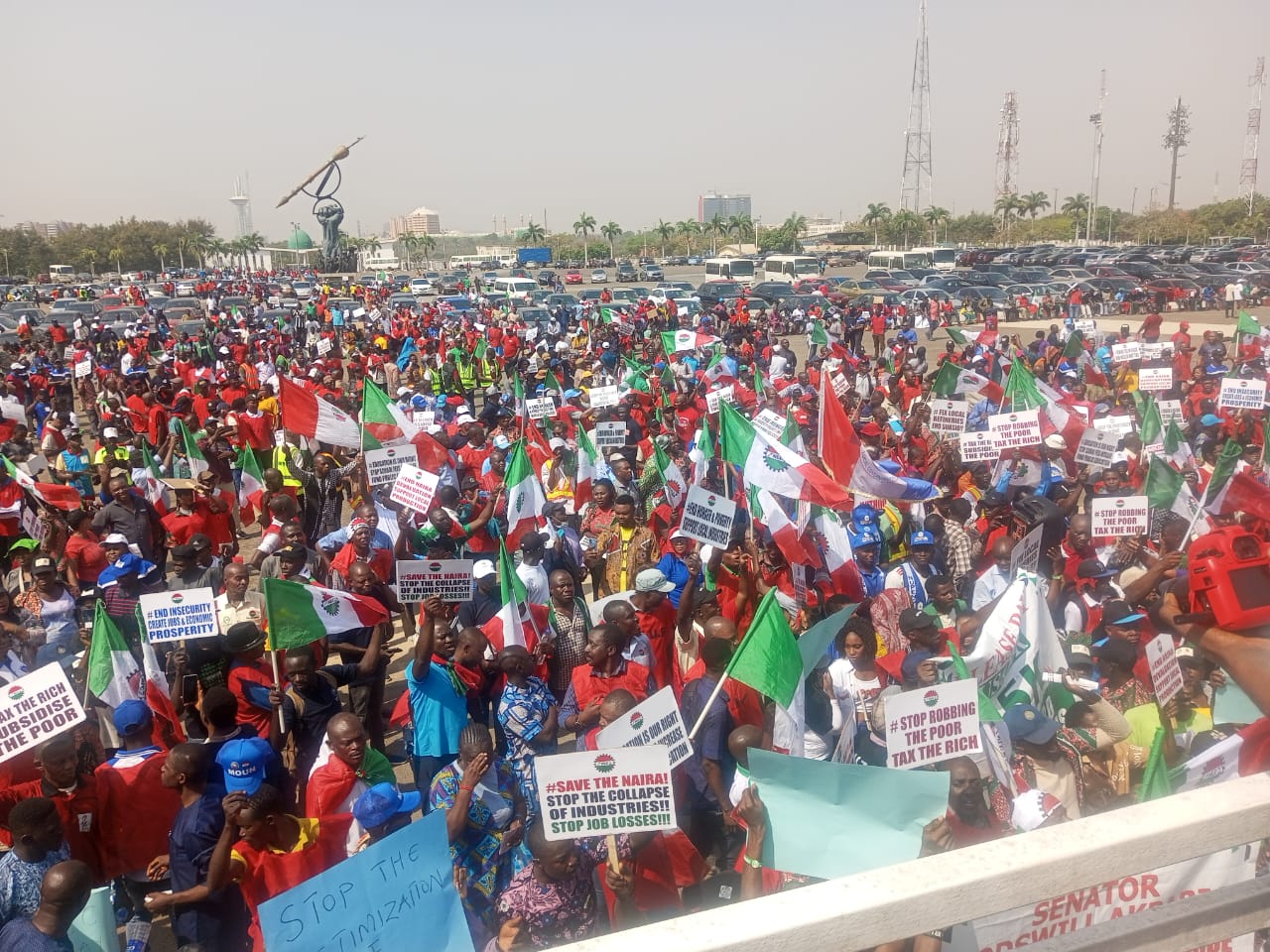The Organized labor is gearing up for a potential push for a significant increase in the minimum wage in Nigeria, with strong indications suggesting a demand of N500,000.
The commencement of zonal public hearings on the new wage structure is set to take place today in six major cities across the country, including Lagos, Kano, Enugu, Akwa Ibom, Adamawa, and Abuja.
The President of the Nigeria Labour Congress (NLC), Joe Ajaero, hinted at the possibility of such a demand, citing concerns over ongoing inflation during an interview on Arise TV on February 11. Ajaero had previously suggested that if inflation continued unchecked, organized labor might even propose a minimum wage as high as N1 million.
However, recent discussions within the NLC indicate that the initial demand might hover around the N500,000 mark, based on proposals gathered from various state chapters. These proposals reflect the increasing cost of living across the nation and the need for workers to maintain a decent standard of living.
The zonal public hearings aim to gather input from a wide range of stakeholders, including organized labor, state governors, ministers, civil society groups, and the private sector. This collaborative approach seeks to ensure that any new minimum wage reflects current economic realities while meeting the aspirations of workers.
Key figures, including NLC President Joe Ajaero and Minister of Finance Wale Edun, are expected to chair meetings in different zones, fostering dialogue and consensus-building.
The push for a new minimum wage comes as a 37-member panel, inaugurated by President Bola Tinubu, works towards recommending a new national minimum wage before April 1, following the expiration of the current N30,000 minimum wage as mandated by law.
Labor representatives from various states have emphasized the need for a wage increase that adequately addresses the rising cost of living and ensures workers’ welfare. Proposals range from N300,000 to N500,000, reflecting differing assessments of economic needs and regional disparities.
As the public hearings unfold, attention remains focused on achieving a fair and equitable minimum wage that uplifts workers across Nigeria while considering the economic capacities of both government and private employers.



